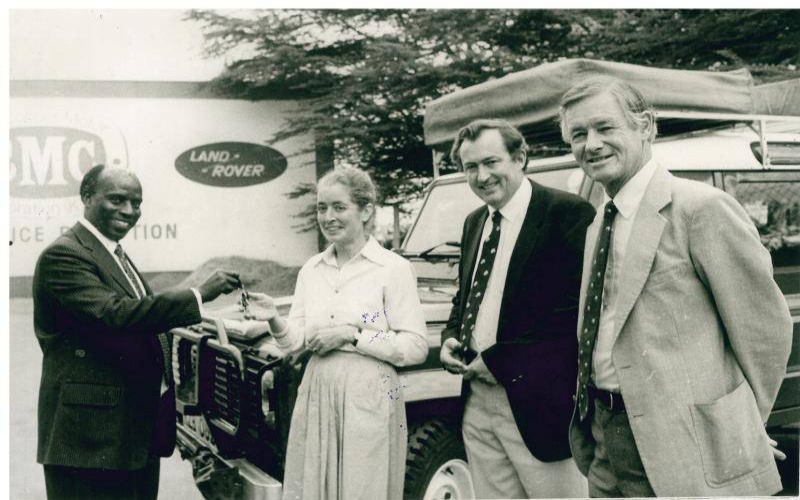×
The Standard e-Paper
Fearless, Trusted News

CMC Holdings chairman, Jeremiah Kiereini, handing over keys of one of the newest Land Rover models to Miss Andy Robertson who was accompanied by Dr Richard Leakey in this 1988 picture.. [File/Standard]
The death of Jeremiah Gitau Kiereini at 90 has brought to an end the remarkable life of the former technocrat with a penchant for black pinstriped suits; a billionaire business magnate with interests sweeping across insurance, real estate, property, large scale agriculture, banking, milling and hospitality.